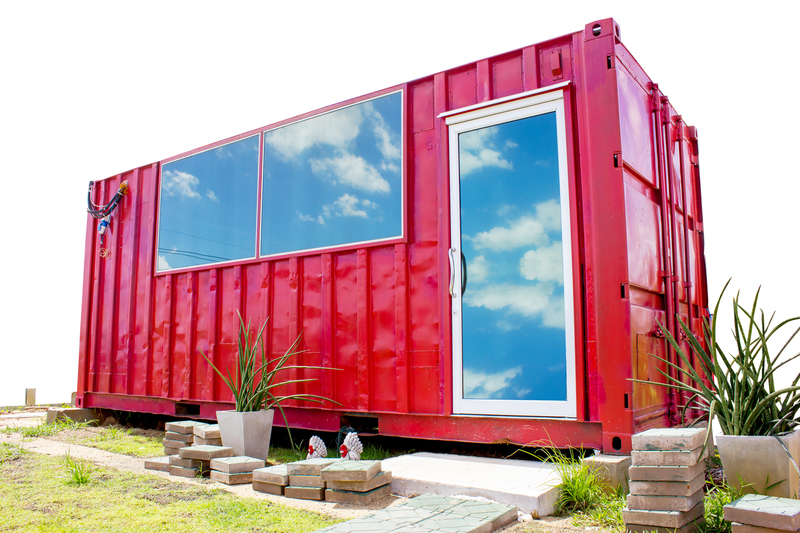Tricks to Easily Save When Getting Rid of Bulky Waste
When it comes time to dispose of bulky waste items--like old furniture, mattresses, appliances, construction debris, and other oversized junk--the process can feel overwhelming and expensive. However, with the right approach, you can streamline the experience and save money. This comprehensive guide breaks down the best tricks to easily save when getting rid of bulky waste, helping you keep clutter away from your home and cash in your pocket.
Understanding Bulky Waste: What Does It Include?
Before exploring savings on bulky waste removal, it's crucial to understand what counts as bulky waste. Typically, municipalities categorize the following as large waste items:
- Sofas, armchairs, and couches
- Dining and coffee tables
- Beds and mattresses
- Large household appliances (refrigerators, ovens, washing machines)
- Cabinets and bookshelves
- Carpets and rugs
- Televisions and entertainment units
- Garden waste and debris (in some cases)
- Building materials (bathtubs, sinks, etc.)
Each municipality and waste provider may define bulky waste differently, so always check local guidelines before making arrangements.

Why Bulky Waste Disposal Can Be Expensive
Disposing of large waste items involves additional effort and costs compared to regular trash collection. Key factors affecting the price include:
- Item size and weight
- Transportation requirements
- Labor for removal
- Disposal fees at landfill or recycling centers
- Distance to disposal site
With these costs in mind, finding effective savings strategies is essential. Let's dive into the best tricks to reduce your bulky waste removal expenses.
The Best Tricks to Easily Save When Disposing of Bulky Waste
1. Check for Free Municipal Collection Programs
Many cities and towns offer free or low-cost bulky waste pickup several times per year as part of their waste management services. Some tips to maximize these programs:
- Consult your city's website or call their sanitation department to learn about scheduled collection dates and accepted items.
- Plan ahead: These pickups often occur on specific dates, so mark your calendar and gather your bulky waste in advance.
- Ensure items are placed correctly at the curb and follow the preparation guidelines to avoid being passed over.
Using these municipal services is the easiest way to save money on bulky waste disposal.
2. Reduce, Reuse, and Recycle Whenever Possible
The best trick to save on bulky waste removal is not to throw it away at all! Before considering paid disposal options, see if you can:
- Donate usable items to charities, shelters, or thrift stores such as Goodwill, Salvation Army, or Habitat for Humanity Restores.
- Offer unwanted furniture or appliances for free (or sale) on platforms like Craigslist, Facebook Marketplace, or local online groups.
- Upcycle or repurpose items for home projects or give them to someone who can.
- Separate out recyclable parts--many appliances have metals or components that can be recycled at specialized centers.
Many organizations will even collect items directly from your home, saving you time and money on transport.
3. Break Down Bulky Waste into Smaller Pieces
If the rules in your area allow it, breaking down bulky items into more manageable pieces can help you:
- Fit more waste in standard-sized bins for regular trash pickup
- Reduce the amount charged by removal companies, as fees are often based on volume
- Make it easier to transport items to disposal or recycling centers yourself
Tip: Ensure you follow safety guidelines when dismantling furniture or appliances, and separate hazardous or electronic waste for proper recycling.
4. Pool Resources with Neighbors
Coordinate with your neighbors to organize a group clean-up or "junk day":
- Rent a dumpster together and share the cost
- Book a group collection with a local junk removal service for a bulk discount
- Split transportation expenses if hauling items to the landfill or recycling center
This community approach not only saves money but also strengthens neighborhood relationships.
5. Compare Local Bulky Waste Removal Services
Don't just hire the first junk removal company you find. Instead:
- Get multiple quotes from different providers to compare prices and services.
- Look for special deals or discounts: Many companies offer limited-time promotions or bundle rates for specific types of waste.
- Read reviews and choose a reputable business to avoid hidden fees or unreliable service.
Pro Tip: Smaller, local removal companies sometimes beat the rates of large national chains--and may offer more flexible scheduling.
6. DIY Disposal: Use Your Own Vehicle
If you have access to a truck or van, consider self-hauling bulky waste to your local transfer station, landfill, or recycling facility. Here's how you can save:
- Check if your town offers free dumping days or discounted fees for residents.
- Make just one trip by waiting until you have multiple items or combining with neighbors.
- Be sure items are securely loaded and meet facility rules to avoid fines.
Keep in mind that some disposal sites have restrictions or charge by the load size--always call ahead for details.
7. Repurpose or Sell Valuable Items
Not all bulky waste lacks value. Some items--like old wood furniture, bicycles, or scrap metal--can be repaired, upcycled, or sold for cash:
- List items online for free or cheap, highlighting their potential for restoration projects.
- Contact scrap yards or recycling centers that buy metal, electronics, or other materials.
- Hold a yard sale for a "final clearance" and make a few extra dollars before disposal.
Turning bulky waste into opportunity is both eco-friendly and financially smart!
How to Avoid Hidden Fees When Removing Bulky Waste
Bulky waste removal can carry extra charges for specific items, labor, or disposal methods. To keep costs in check, follow these guidelines:
- Ask for all-inclusive pricing up front when hiring a junk removal company.
- Check if extra labor is charged for items that require two or more people to carry.
- Confirm whether items with special disposal requirements (like refrigerators with refrigerant or mattresses with bedbugs) incur extra fees.
- Ensure appliances are emptied and disconnected, and furniture is free of personal items.
Double-checking the details before pickup prevents surprise costs at the end.
Eco-Friendly and Legal Ways to Dispose of Bulky Waste
Savings matter, but so does responsible bulky waste disposal. Always dispose of unwanted items legally and with environmental care:
- Never dump bulky waste in public places or unauthorized areas. Illegal dumping can result in hefty fines.
- Take electronics, batteries, and hazardous materials to specialized recycling centers.
- Separate metal, wood, and other recyclable fractions as required by your local waste authority.
- If you hire a company, make sure they are licensed and comply with environmental regulations.
Choosing eco-friendly options may even open up free or reduced-cost collection programs in your community.
What to Avoid When Getting Rid of Bulky Waste
- Waiting until the last minute: Rush jobs almost always cost more and limit your saving options.
- Ignoring local rules: Leaving items on the curb outside scheduled pickup times can result in fines or missed collections.
- Overstuffing bins: Most regular trash collection will not take oversized or overloaded containers.
- Improper preparation: Failing to secure and prepare bulky waste may cause collection problems and potential injury.
Being proactive and informed is the best way to minimize hassle and reduce costs.

Frequently Asked Questions About Bulky Waste Disposal
Can I leave bulky items on the curb anytime?
No. Check your municipality's rules for scheduled bulky waste collection days and approved placement procedures. Leaving items out early may lead to penalties.
What items are not accepted as bulky waste?
Most programs exclude hazardous materials, liquid waste, car parts, and some electronics. Always verify your local guidelines before disposal.
Is there a limit to how much I can dispose of?
Yes, many municipal pickups limit the number of bulky items per household per collection. Check with your waste management provider for details.
Are there free options for getting rid of old furniture and appliances?
Yes! Many charities, recycling centers, and online community groups can help you find a free outlet for unwanted but usable goods.
Conclusion: Smart Strategies for Bulky Waste Savings
Disposing of bulky waste items doesn't need to be stressful or expensive. With these proven tricks to easily save when getting rid of bulky waste, you can keep your living space clutter-free and protect your budget:
- Take advantage of free or low-cost municipal collections
- Donate, repurpose, or sell when you can
- Break down and bundle items to reduce volume-based fees
- Pool resources with neighbors for shared savings
- Compare service providers and get the best deal
- Consider DIY drop-off at local recycling or landfill sites for further savings
Remember: Always prioritize safe, legal, and environmentally friendly disposal methods. The next time you need to offload large items, you'll be ready to save money and make a positive impact!
Looking for more household savings tips? Explore our blog and discover even more ways to live smart, spend less, and keep your home--inside and out--at its best.
